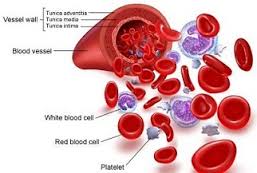
Dental review on Low Platelet Count (Thrombocytopenia )
Blood makes up about 8% of the human body weight. It contains different types of cells that has its own function , erythrocytes (Red cells), leucocytes (White cells), thrombocytes (platelets) and plasma. Platelets are made by the bone marrow and they help your blood to clot. A normal platelet count ranges between 150,000 to 400,000 cells/mm3 of blood.
Dental Alerts
Platelets count ranges between 50,000 and 100,000 cells/mm3 will bleed mildly with trauma or with dental surgical procedures. But when the platelet count is less than 20,000 cells/mm3 an excessive and spontaneous prolonged bleeding is predictable leading to non formation of a hemostatic plug, resulting in hemorrhage. . Routine dental treatment is contraindicated when platelet count is below 50,000/mm3.
In case of impacted wisdom teeth removal , Complete Blood Count (CBC) should be done and assessed within the past 7 days prior to dental treatment. And in severe cases confirmed on the day of surgery . The platelet count must be above 75,000/mm3, it is best to have the platelet count above 100,000/mm3.. Any bleeding occurs in case of minor surgery is controlled with local measures such as mechanical pressure, haemostatic agents (e.g., Gelfoam® or Surgicel®), suturing, and tranexamic acid mouthwash but in general we suggest to have very gentle dental visits. Avoid Inferior nerve block in order not to injure internal vessels and cause internal bleeding in to sub mandibular space which may need emergency dental care.
Leave a reply →
Leave a reply